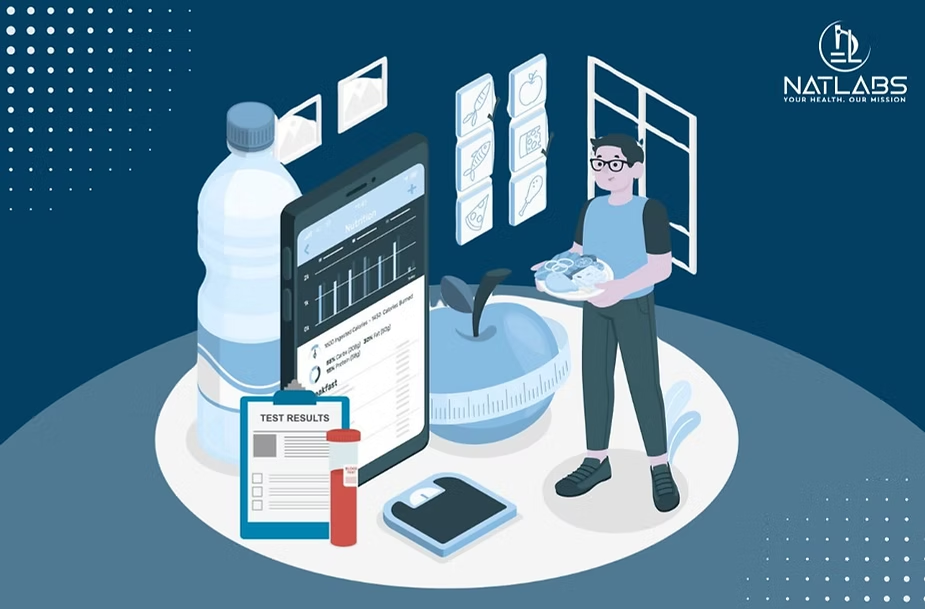
Sneezing spells during monsoon, mysterious skin rashes after Diwali celebrations, or that persistent cough that won’t go away despite multiple home remedies, sound familiar? Allergies have become increasingly common in Indian households, affecting people across all ages and regions. Yet despite their growing prevalence, allergies often remain undiagnosed or misunderstood, leading to years of discomfort and ineffective treatments.
India’s Allergy Reality
Recent studies reveal that allergic rhinitis affects approximately 22% of Indian adolescents, with many experiencing year-round symptoms rather than just seasonal reactions. This rise in allergic conditions stems from multiple factors unique to our changing Indian landscape.
Our diverse environmental conditions create a complex allergy picture. From the humid coastal regions where house dust mites thrive, to the pollution-heavy metropolitan cities where airborne allergens multiply, Indian homes face an unprecedented variety of potential triggers.
Common allergens in Indian households include house dust mites (particularly problematic in humid regions), seasonal pollens from native flowers and grasses, insects like cockroaches and mosquitoes, food allergens such as milk, nuts, seafood, and wheat, and moulds that flourish in damp conditions common during monsoons.
The situation becomes more complex when you factor in indoor air pollution from cooking fuels, incense burning during daily prayers, and tobacco smoke, all of which significantly worsen respiratory allergies and asthma rates across the country.
Understanding Allergic Reactions
Allergies represent your immune system’s overenthusiastic response to harmless substances. When an allergen enters your body, it triggers the production of Immunoglobulin E (IgE) antibodies, which then cause the familiar symptoms ranging from mild sneezing and itching to severe asthma attacks or even life-threatening anaphylaxis.
The challenge lies in identifying specific triggers. Allergy symptoms often overlap with other conditions, a persistent cough might be allergic rhinitis, a respiratory infection, or pollution-related irritation. Without proper testing, families often resort to trial-and-error approaches or avoid multiple potential triggers unnecessarily.
The Diagnostic Revolution
Laboratory diagnostics provide objective, accurate identification of specific allergens responsible for symptoms. Modern allergy testing helps eliminate guesswork and enables targeted management:
Skin Testing Methods
Skin Prick Tests remain the gold standard for immediate allergy reactions. Small amounts of common Indian allergens are introduced into the skin’s surface, with visible reactions confirming sensitivities. This quick, reliable method helps identify environmental and food allergens within minutes.
Blood-Based Assessments
Specific IgE Testing measures antibodies to particular allergens through blood samples. This proves especially valuable when skin testing isn’t suitable, for patients with severe eczema, those taking antihistamines, or young children where skin testing might be challenging.
Total IgE Measurement indicates overall allergic tendency, helping healthcare providers understand the extent of allergic predisposition.
Specialised Testing
Patch Testing identifies delayed allergic reactions, particularly useful for contact allergies caused by cosmetics, dyes, metals, or traditional products like henna.
Food Allergy Panels help identify problematic foods through targeted testing, essential in a country with diverse dietary traditions and increasing food allergies among children.
Why Accurate Diagnosis Matters
Precise allergy identification transforms management from reactive to proactive:
Targeted Avoidance Strategies: Knowing specific triggers enables effective environmental modifications without unnecessary restrictions.
Personalised Treatment Plans: Medications can be tailored to address your specific allergic profile rather than providing general symptom relief.
Emergency Preparedness: Identifying severe allergies enables proper emergency planning and medication availability.
Quality of Life Improvement: Accurate diagnosis often leads to significant symptom reduction and better daily functioning.
Cost-Effective Management: Targeted treatment reduces unnecessary medications, hospital visits, and emergency interventions.
Challenges in Indian Allergy Care
Several barriers complicate allergy diagnosis and management in India:
Specialist Shortage: Allergists and immunologists remain concentrated in major cities, leaving many regions underserved.
Awareness Gaps: Many people don’t realise allergies can be scientifically diagnosed and effectively managed.
Environmental Complexity: India’s diverse climate and regional variations require localised testing approaches rather than standardised panels.
Cultural Factors: Traditional beliefs about allergies and resistance to dietary modifications can impact management strategies.
Preparing for Allergy Testing
Successful allergy diagnosis requires proper preparation:
Symptom Documentation: Keep detailed records of when symptoms occur, their severity, and potential triggers you’ve noticed.
Medication Management: Antihistamines and certain other medications can interfere with skin testing, so follow your doctor’s guidance about temporarily discontinuing them.
Lifestyle Information: Share details about your home environment, occupation, diet, and travel patterns that might provide clues about exposure sources.
Creating Allergy-Friendly Indian Homes
Whilst testing identifies triggers, environmental management prevents reactions:
Regular cleaning routines that address dust mite accumulation, improved ventilation to reduce indoor humidity and pollutants, air purification systems where feasible, careful pet management if animal allergies are identified, and strategic gardening choices that minimise pollen exposure.
During festival seasons, when incense, rangoli colours, and traditional decorations might trigger reactions, families can plan ahead based on known sensitivities.
The Future of Allergy Care
Advanced diagnostic technologies are making allergy testing more comprehensive and accessible across India. Comprehensive allergy panels specific to Indian environmental and food triggers, home collection services that make testing convenient, and telemedicine consultations that bring specialist expertise to remote areas all contribute to better allergy management.
Taking Control of Allergic Conditions
Allergies need not diminish your quality of life or restrict your enjoyment of Indian traditions and environments. With accurate diagnosis through modern laboratory testing, most allergic conditions become highly manageable.
The key lies in moving beyond symptom management to understanding specific triggers through scientific testing. This knowledge empowers families to make informed decisions about environmental modifications, dietary choices, and treatment strategies.
Leading diagnostic providers understand the unique allergy challenges facing Indian families and offer comprehensive testing panels designed for our specific environmental and dietary contexts.


